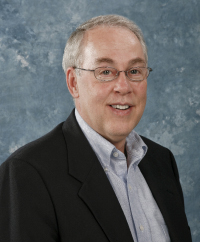James J. Hack, Bio
James J. Hack directs the National Center for Computational Sciences (NCCS), a leadership computing facility at Oak Ridge National Laboratory supporting transformational science. He identifies major high performance computing needs from scientific and hardware perspectives and develops strategies to meet those needs as machines evolve past the petascale, the ability to carry out a quadrillion calculations per second. An atmospheric scientist, Dr. Hack also leads ORNL’s Climate Change Initiative.
After receiving a Ph.D. in atmospheric dynamics from Colorado State University in 1980, Dr. Hack became a research staff member at the IBM Thomas J. Watson Research Center, where he worked on the design and evaluation of high-performance computing architectures. In 1984 he moved to the National Center for Atmospheric Research, a National Science Foundation-sponsored center, where his roles included senior scientist, head of the Climate Modeling Section, and deputy director of the Climate and Global Dynamics Division. He was one of the principal developers of the climate model that ran on NCCS supercomputers to provide more than one-third of the simulation data jointly contributed by the Department of Energy and the National Science Foundation to the most recent assessment report of the United Nations’ Intergovernmental Panel on Climate Change, the group that shared the 2007 Nobel peace Prize with Al Gore. He has also held an adjoint professor position at the University of Colorado at Boulder and is author or co-author of 98 scientific or technical publications.
Dr. Hack is a member of the DOE’s Advanced Scientific Computing Advisory Committee and the Working Group on Numerical Experimentation, sponsored by the Joint Scientific Committee for the World Climate Research Program and the World Meteorological Organization Committee for Atmospheric Sciences. He also chairs the Lawrence Livermore National Laboratory/Program for Climate Model Diagnosis and Intercomparison Advisory Committee. He has served on the ORNL Computer Science and Mathematics Division Advisory Committee, a wide variety of NSF high-performance computing review and advisory panels, the U.S. Water Cycle Scientific Steering Group, and was editor for the Journal of Climate. He was also a founding member of DOE’s Computational Science Graduate Fellowship Program, a highly successful educational initiative in which he continues to participate. |
 |

